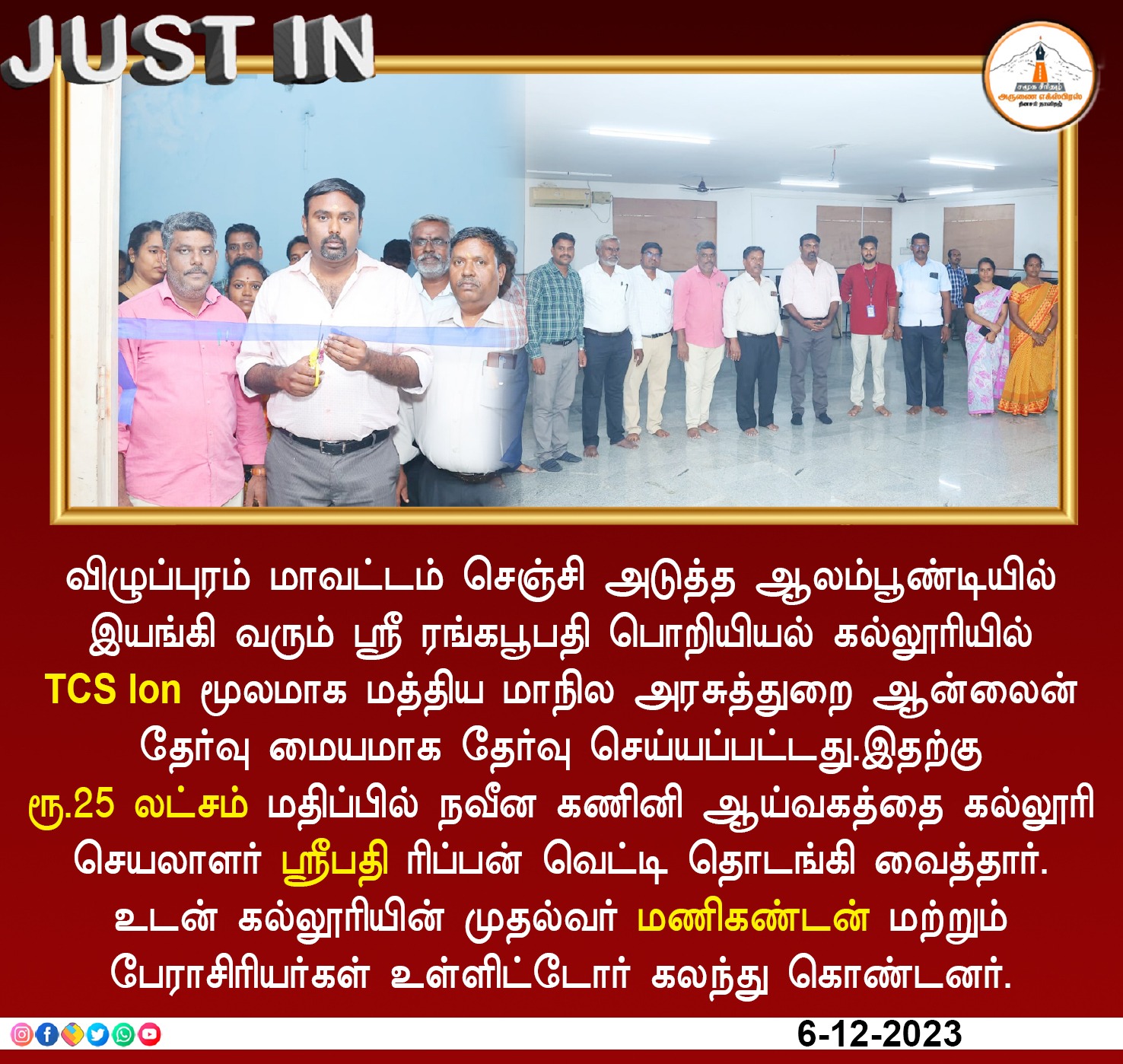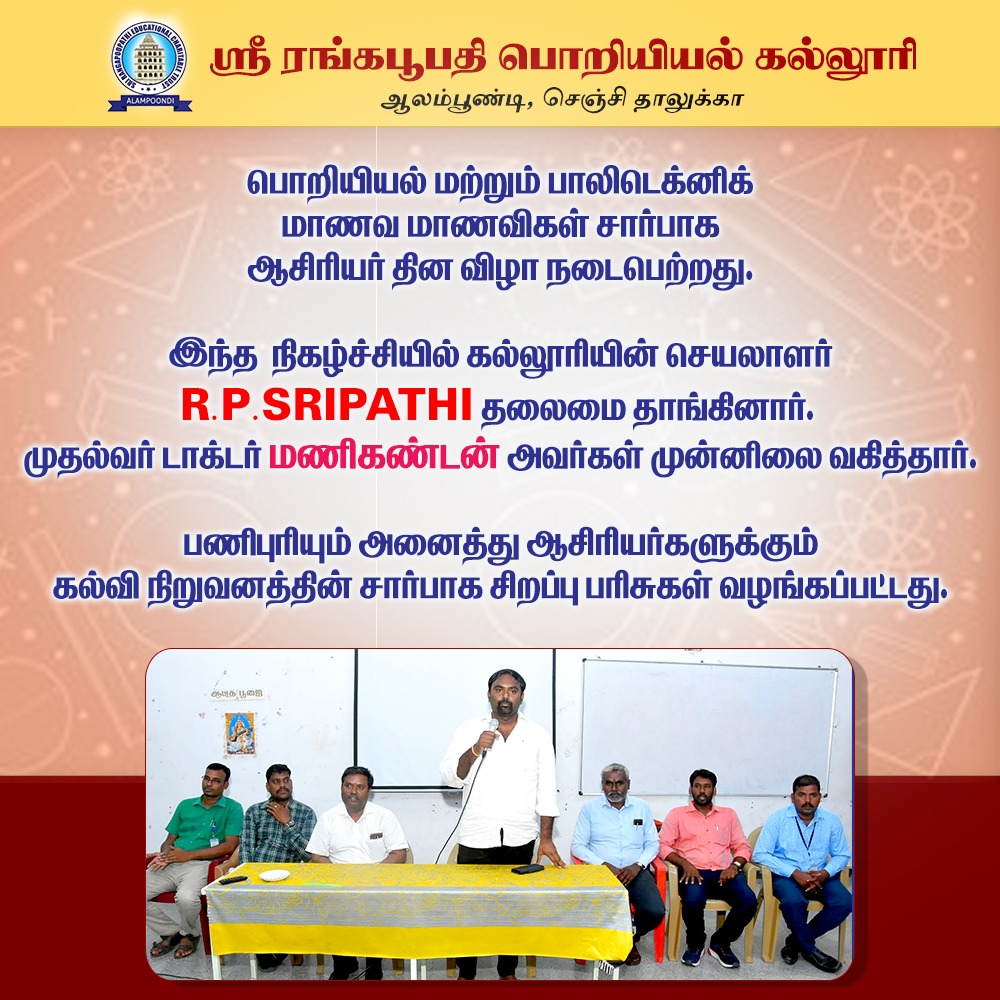Vision
To gain reputation on a national and international level as a center of excellence for higher education and research in the domains of Electronics and Communication Engineering.
Mission
In order to fulfill the vision, the department will
• To provide students with high-quality mechanical engineering education and to develop their abilities so they are ready for the workplace.
• To encourage original thinking in young, energetic minds by involving them in research and consulting.
• To impart the appropriate level of morality, ethical ideals, and lifelong learning to the general population in order to enable them to take meaningful actions.
Programme Educational Objectives
PEO1: To give students a solid foundation in fundamental mathematical and scientific principles and to teach them how to use them in the field of instrumentation engineering.
PEO2. To obtain information in the field of Engineering which is necessary to recognize, create and solve problems in the interdisciplinary disciplines of Engineering and Technology.
PEO3: Teaching pupils how to design a system, part, or process that satisfies demands while taking economic, environmental, and social considerations.
PEO4. To pique students curiosity in working in multidisciplinary teams.
PEO5: To create instrumentation engineers who can compete in the current world and who are aware of their ethical and moral obligations..
Programme Specific Outcomes
On successful completion of the program, our graduates will be able to
PSO 1: Develop technical expertise to address issues and difficulties in the field of instrumentation using reliable control tools.
PSO 2: Set up and maintain instruments in process industries using the principles of measurement and control approaches.
Program Outcomes
Graduates in engineering will be able to:
Engineering knowledge: Use your understanding of physics, math, engineering fundamentals, and your chosen engineering specialty to solve challenging engineering challenges.
Problem Analysis: Use the fundamental concepts of mathematics, the natural sciences, and engineering sciences to identify, formulate, assess research material, and analyze difficult engineering problems.
Solution Development and Design: Designing complicated engineering problems' solutions as well as system elements or processes that satisfy the required requirements while taking into account public health and safety, cultural, socioeconomic, and environmental factors is essential.
Conduct complex problem investigations: To come to reliable findings, use research-based knowledge and research techniques, such as experiment design, data analysis and interpretation, and information synthesis.
Use of modern tools: Develop, pick, and apply suitable methods, materials, and modern engineering and IT tools, such as prediction and modeling, to challenging engineering tasks while being aware of their limitations.
Engineering and society Assess societal, health, safety, legal, and cultural issues and the resulting obligations pertinent to the professional practice of engineering by using reasoning informed by contextual knowledge.
Environment and sustainability: Acquire an understanding of how professional engineering solutions affect society and the environment, and show why sustainable development is necessary.
Ethics: Adhere to professional ethics, obligations, and standards of engineering practice. Apply ethical principles.
Work well both as an individual and as a team member or leader in a variety of teams and multidisciplinary environments.
In order to effectively communicate complicated engineering tasks to the engineering community and the general public, one must be able to understand, create, and present effective reports and design documentation, as well as give and receive clear directions.
Demonstrate knowledge and comprehension of engineering and management principles and apply them to your own work as a team member and leader to manage projects and in interdisciplinary settings. This also applies to project management and finance.
Continuous learning understands the importance of, and be prepared for, autonomous, lifelong learning in the fullest sense of technological development.
About the Department
The Electronics and Communication Dept had its debut in the rise of year 2009 by the AICTE approval, with an intake of 60 students at B.E level, helps to solidify a basic underlying scientific and engineering principles and allows students to hone life-long skills to question, analyze, and develop solutions to all of the challenges that they and the world will face.
Since then the department has come a long way and is now regarded as one of the premiere departments of the Institute. It is equipped with outstanding infrastructure and boasts of a unit of learned and dedicated faculty members and sincere staff who work with zeal and enthusiasm to provide a vibrant and optimum learning environment to the students and help them acquire the skills which are required to excel in today’s competitive environment.
In order to ensure high standards of education for its students, the department has constantly upgraded itself by adding well-equipped and fully furnished laboratories to supplement the theory courses. Old laboratories have been upgraded with state-of-the-art equipments and many new ones have been added. The course contents for each semester have been analyzed in every aspect and are provided with the Value-Added Courses for giving the students a holistic and pragmatic view of the present scenario of the Electronics and Communication industry as well as a grounding in the concepts and theories that will shape the future of the industry.
The department believes in serious academic pursuit and encourages radical and original thinking which paves the way for creativity and innovative ideas. The qualities inculcated into the students make them not only good engineers but good human beings also. Our students actively participated in organizing various events such as seminar technical workshops.
Highly-qualified and experienced faculty members, state-of-the-art facilities and the extensive industry-academia interaction all serve to make engineering education a unique and enriching experience.
The department also set up few clubs for students namely NSS, Red Ribbon Club RRC and Field survey with police, students who are interested in doing mini projects, students interested in cultural activities - Creating AIDS awareness and blood donation motivation towards students The department has a close interaction with the alumni and continuously using their inputs for the betterment of the department and the students.
Latest Events
Hands on Workshop
Students Intake
PROGRAMME | DESCRIPTION |
Under Graduate Course B.E. in Electronics and Communication Engineering | 60 Seats |
Library Facilities
We have more than 300 in our department in addition to the main library. In addition to Textbooks, Lab manual, Project Documents and Hardware kits maintains in the department. The library keeps a collection of university question papers in its private question bank and lab instructions.
Laboratories
The department has the following well-equipped laboratories,
ELECTRONIC DEVICES AND CIRCUIT LABORATORY
COMMUNICATION SYSTEM LABORATORY
LINEAR INTEGRATED CIRCUITS LABORATORY
VLSI DESIGN LABORATORY
DSP LABORATORY
DIGITAL ELECTRONICS LABORATORY
MICROPROCESSOR AND MICROCONTROLLER LABORATORY
OPTICAL AND MICROWAVE LABORATORY



